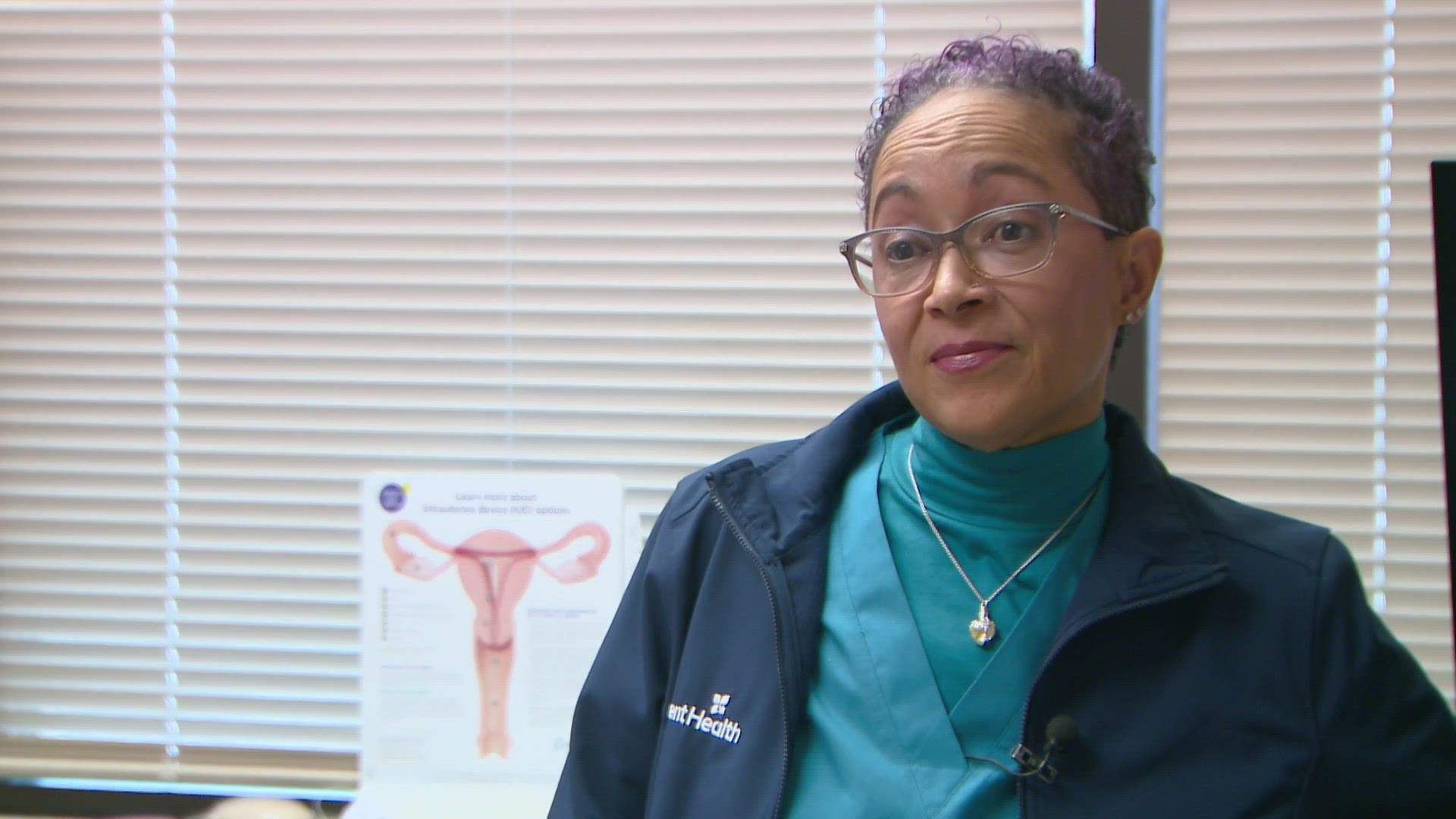LOUISVILLE, Colo. — Dr. Dawn Owens Robinson has been caring for women and their infants as an OBGYN for more than 23 years.
In that time, she's seen firsthand the disparities facing Black women in health care.
"It's generational, it's historical and it's ongoing today," said Owens Robinson, an OBGYN at AdventHealth Avista in Louisville.
"So if we're talking maternal and pregnant women, we are three to four times more likely to die in childbirth or the first 42 days after delivery," she said. "Black babies are two and a half times more likely to die in the first year of life. A study out of Florida showed that Black babies had a 50% higher chance of death if they had a white pediatrician. So there are significant deficits and delinquencies, or whatever titles or names you want to put with it, when it comes to care for Black women and people of color in general.”
When it comes to why these disparities exist, Owens Robinson said access to care is too simple an answer.
"It's because of lack of income, lack of jobs, lack of employment, lack of insurance, racism – institutional, systemic in the health care system," she said. "It's lack of generational wealth, it's lack of food, it's food deserts, maternal deserts, the list goes on."
Owens Robinson said racism plays a clear factor in the care Black women receive, even now.
"They did a study before COVID, a survey of white med students. And they still think we have thicker skin and don't need as much pain medicine. And that was this decade," she said.
Having these massive disparities isn't just frustrating, it can be deadly.
"Frustrating puts it -- I think that makes it mild," Owens Robinson said. "People want to say it's access and people want to say it's poor. But Dr. Shalon Irving worked for the CDC epidemiology department, she had two Ph.D.s, two master's degrees and was fighting this same subject. And 15 days after delivery died."
She said having a provider who looks like you and understands you makes a big impact.
"Studies have shown that our Black babies survive better, we listen better, we do better when the providers in front of us have similar cultural backgrounds and respect for where we're coming from," Owens Robinson said.
She's seen the difference it makes firsthand.
"And when you walk into a room, even with a mask on, you could see their face light up. You could see their shoulders drop down. You could see them smiling beneath the mask, because they're like 'oh, this doctor looks like me,'" she said. "So I think it's just a level of comfort and trust."
Still, CNN reports less than 6% of physicians in the U.S. are Black.
Owens Robinson said she knew she wanted to be a physician at just 5 years old. Counselors tried in middle school and high school to deter her, steering her toward teaching. She said graduating from medical school with her family cheering her on, and now serving women, means so much.
"I think it's even more meaningful 23 years later. I tell patients sometimes I cry at deliveries, and I tell fathers, this is a miracle. I'm involved in the miracle of life every day. So I'm blessed," she said.
That drive to help others is now what helps her advocate for a more equitable health care system. She knows solutions won't be simple or fast, but it's a path forward that needs to begin.
"And I think that's where it starts. I think we need to look at ourselves and see where we can do better," Owens Robinson said.
As for what can be done to improve these disparities, Owens Robinson said implicit bias training in health care should be mandatory. And when it comes to preventing a disease, illness or cancer, she said education is key.
For OBGYNs, she said having midwives and doulas in the delivery rooms can make a massive difference in creating positive outcomes for both mom and baby. And for the doctors themselves, listening to their patients and really hearing what they say is critical.
“And then, the bigger problems are dealing with institutional, systemic racism. And my colleague asked, 'Well how do we fix that?' I said that started 400 years ago when our toes touched the soil. We’re not going to fix it in 400 days," Owens Robinson said. "It’s a generational, systemic institutional broken system and it’s going to take multiple tears and years and people to get involved and to care to make a difference."
SUGGESTED VIDEOS: Telling Black Stories

